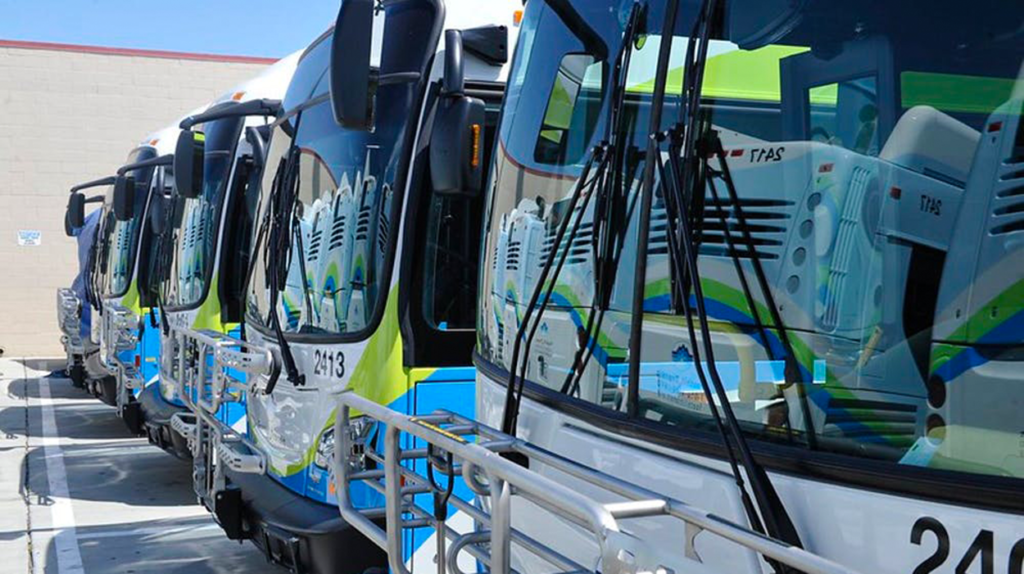In The News
Foothill Transit approves contracts that will advance its hydrogen fuel-cell fleet plans
Published by Mass Transit Magazine

The Foothill Transit Governing Board gave approval to two contracts at its Oct. 1 meeting that will support its overall sustainability goals and add another zero-emission technology to its fleet mix.
The transit authority, an early adopter of battery electric buses, will pursue plans to explore hydrogen fuel cell vehicles with the addition of 20 hydrogen fuel cell electric Xcelsior CHARGE H2™ buses from New Flyer of America Inc. and the construction of the Pomona Hydrogen Fueling Station.
The purchase of the 40-foot hydrogen fuel-cell buses is supported by funds from the Federal Transit Administration (FTA) and the new vehicles are anticipated to arrive in 2022.
“Foothill Transit is a leader in the adoption and deployment of electric mass mobility. This order demonstrates that there is no ‘one size fits all’ for electrification, and that operators require a range of bus sizes and propulsion systems to optimize their service offering,” said Paul Soubry, president and CEO, NFI.
Foothill Transit has been working with the Center for Transportation and the Environment to plan the integration of the fuel cell vehicles into its fleet. To fuel the buses, the agency’s Fuel Cell Electric Bus team developed specifications for a hydrogen fueling station and facility upgrade last April. The Pomona Hydrogen Fueling Station design-build contract was awarded to Clean Energy Fuels Corp. The company will design, construct and maintain a hydrogen station and supply liquid hydrogen fuel for Foothill Transit.
“Our new hydrogen fuel cell fleet is the next step in our evolution towards a zero emissions future,” said Doran Barnes, CEO of Foothill Transit. “Our long-time partner, Clean Energy, has been providing low carbon [renewable natural gas] for our buses for years and we look forward to continuing to work with them as we expand into hydrogen fuel cell technology and fuel.”
Clean Energy’s $13.59-million proposal was the top scorer among five proposals that were evaluated for project understanding, qualifications and experience, the proposed team, the technology solution and work plan and schedule.
Clean Energy will use Nicosai Contracting International for on-site construction services, Messer Group for the hydrogen equipment supply and station design and Fielder Group for the engineering design support.
“Being awarded our first hydrogen station and supply contract for Foothill Transit is very important to Clean Energy because it demonstrates our ability to move to different alternative fuels as our customers expand to other technologies,” said Andrew J. Littlefair, president and CEO, Clean Energy. “Transit agencies like Foothill have been on the forefront of alternative fuels for decades because it’s in their DNA to serve their communities with clean transportation. Clean Energy has enjoyed being along for the ride with Foothill as it tackles air quality and greenhouse gas issues.”
Related
In The News
Large New York Order for New Flyer
Read More
In The News
NFI subsidiary New Flyer awarded two contracts from New York for up to 2,090 Xcelsior® transit buses
Read More
In The News
New Flyer sells +200 e-buses in New York (with options for further 1,200)
Read More